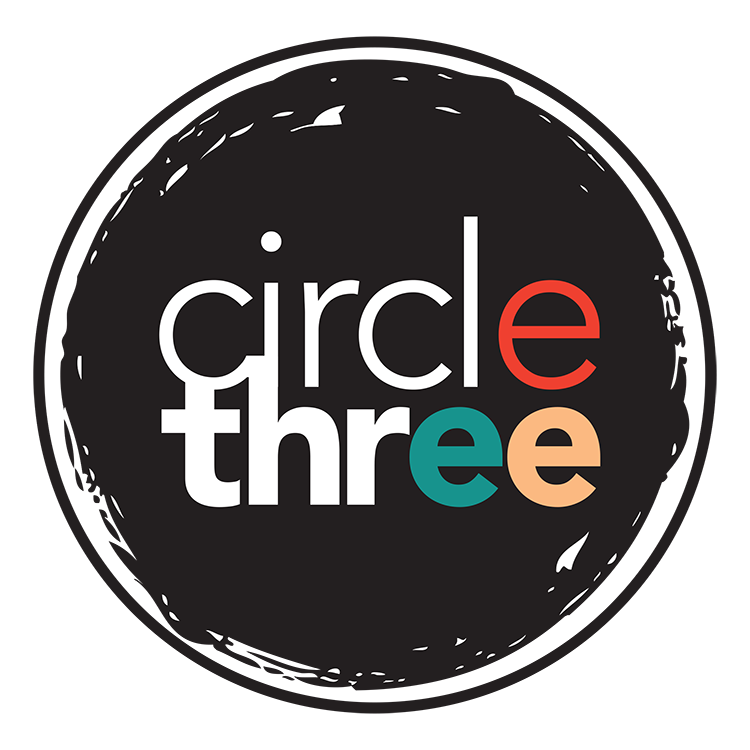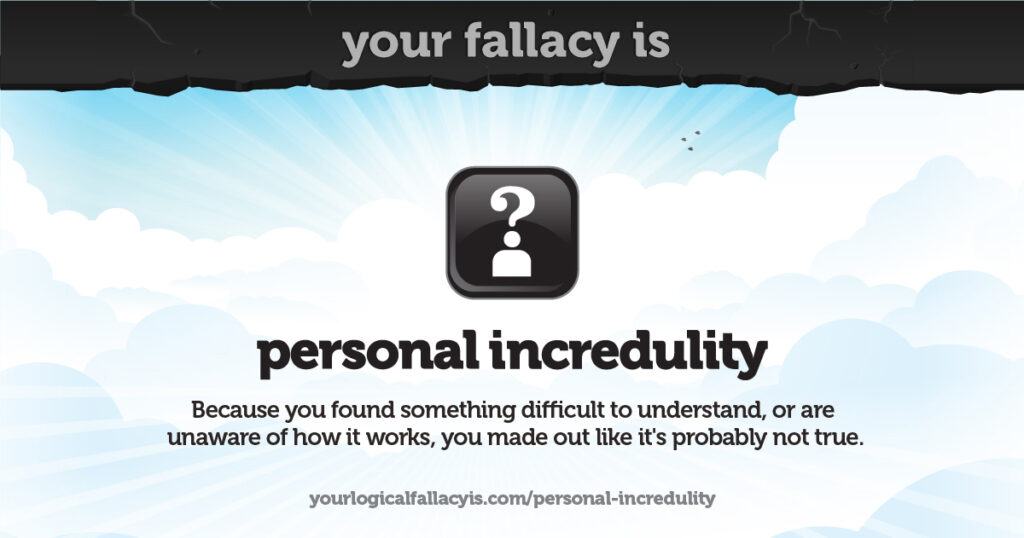This is one part in a series on Cognitive Biases and Logical Fallacies in marketing. Read more here.
The personal incredulity fallacy occurs when someone rejects an argument or idea because they personally can’t believe or understand it. Instead of offering evidence or logical reasoning against the idea, they dismiss it simply because it doesn’t make sense to them or align with their understanding.
For instance, imagine someone claims that a particular species of fish can communicate using complex sounds. Another person might respond with, “I can’t believe that fish can communicate like that; it doesn’t make sense to me.” This response doesn’t challenge the claim based on evidence or facts but rather on the individual’s personal inability to accept or comprehend the idea.
In essence, the personal incredulity fallacy hinges on someone’s inability or unwillingness to accept something as true because it conflicts with their personal beliefs, understanding, or experiences, rather than engaging with the evidence or reasoning presented. Now think of the people who think “all the curbside recycling is being thrown into the same cart, no one would have the time to separate it, therefore it must be all being thrown away and recycling haulers are scamming us out of our money…” Sound familiar?

